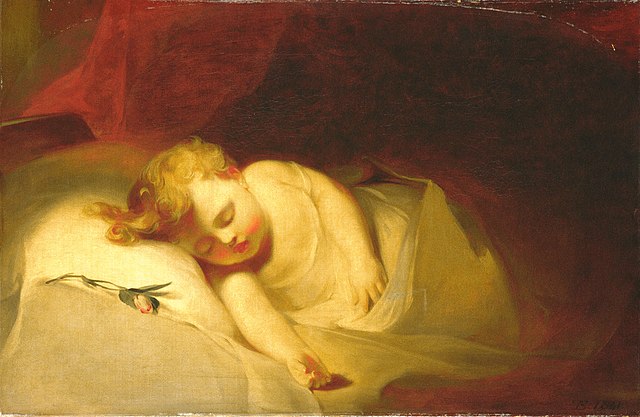More words that are easy to confuse
Conscious/ conscience
The adjective conscious means to be aware of something. Anyone who is unconscious is not aware or awake. A conscious person is alert and responsive, while an unconscious person is asleep or insensible. Conscious is often used to mean deliberate, intentional, intended, or purposeful. If a conscious effort was made, it was done in a knowing, calculated, planned way. The origins of the word go back to a Latin term meaning to know something along with other people.
The noun conscience refers to a feeling that guides us to behave ethically and correctly. Conscience means to have a moral sense. The origins of the noun conscience go back to a Latin term meaning to have inner thoughts about something. These are two important words with different meanings, so to tell them apart is useful. To help us avoid confusing the two words when writing academic research papers or theses, we might consider making up a short sentence, for example:
Science teaches us to have a conscience.
We cannot write the noun conscience without the letters science, and since our conscience tells us how we should behave, we can remember that science may be a source of that guidance. By contrast, we might remember a different sentence about the adjective conscious:
It is delicious to be unconscious.
Students who enjoy sleeping whenever they have a free moment can recall how important it is to take naps. The words conscious and delicious both end with the letters cious, like many other words in English. The word ending cious usually means to be full of something. So to be conscious is to be full of awareness. Other words ending with the letters cious include:
precious
suspicious
vicious
spacious –
gracious
subconscious
ferocious
malicious –
judicious
pernicious
vivacious
luscious
atrocious
precocious
tenacious
specious
voracious
capricious
audacious
auspicious
capacious
efficacious
fallacious
salacious
rapacious
pugnacious
semiprecious
contumacious
avaricious
veracious
mendacious
lubricious
loquacious
injudicious
inauspicious
meretricious
pertinacious
perspicacious
officious

Some usage examples:
- The New York Philharmonic orchestra will celebrate immigrants and highlight “music of conscience” in a strikingly modern season that features five world premieres.
- Personal conscience might be all that’s saving our digital society from a dangerous tumble.
- “The main focus is organising camps but we also want to promote environmental education through the social media and through collaborations with government and private organisations. We don’t expect all kids to be environmentalists but we hope to build a conscience about environmental protection. Some children tell us they want to become veterinarians or marine biologists, or maybe work with the UN. We try to help their dreams come true by facilitating innovative science camps,” he continues.
- Man of conscience Chiang Mai’s newest gallery is rooted in an artist’s desire to contribute to his community. Wattana explains that the ancient handwoven textiles reflect the status of the woman who weaves them. Like the weaver, the delicate textile is a minority practice among modern textiles rolling out of garment factories today.
- Nagging conscience spurred whistleblower. Panida Yotpanya, a 23-year-old intern who exposed irregularities at the Khon Kaen Protection for the Destitute, heard and read a lot about corruption. But she never thought she would be caught in a situation which would turn her into a whistleblower.
- Corporation with a conscience B.Grimm continues its long-standing involvement in local social causes with an exhibition in support of the BACC. Letters and postcards dating back to the 1880s adorn the walls of the Bangkok Art and Culture Centre, ordered in a chronological pathway leading to an exhibition by 15 contemporary Thai artists. The past and the present are two facets highlighted in this show celebrating the 140th anniversary of B.Grimm, a multinational conglomerate whose history is closely tied to that of Thailand’s development.
- As the environmental and social conscience is deeply rooted in our philosophy, Aleenta and akyra hotel brands in association with Pure Blue Foundation aim to become single-use plastic free hotels by 2020. The newest opening, akyra TAS Sukhumvit Bangkok, opening in May 2018, is set to lead the charge in this initiative by becoming the first new hotel in Asia to launch without single-use plastic in its room or food and beverage outlets.
- A Site of Conscience is a place of memory – such as a historic site, place-based museum or memorial – that prevents this erasure from happening in order to ensure a more just and humane future. Not only do Sites of Conscience provide safe spaces to remember and preserve even the most traumatic memories, but they enable their visitors to make connections between the past and related contemporary human rights issues. In this way, a concentration camp in Europe becomes a catalyst for discussions on modern xenophobia; a Gulag museum in Russia highlights repression of free speech now; and a 200-year-old slave house in Africa sparks action to help the 36 million people who are still enslaved today. Founded in 1999, the International Coalition of Sites of Conscience (“the Coalition”) is the only worldwide network of Sites of Conscience. With over 250 members in 65 countries, we build the capacity of these vital institutions through grants, networking, training, transitional justice mechanisms and advocacy. These members and partners remember a variety of histories and come from a wide range of settings – including long-standing democracies, countries struggling with legacies of violence, as well as post-conflict regions just beginning to address their transitional justice needs – but they are all united by their common commitment to connect past to present, memory to action.
- Stadium One, Thailand’s first and Southeast Asia’s largest lifestyle hub for the health-conscious, is scheduled for opening in November.
- Lao Prime Minister Thongloun Sisoulith has warned members of the public to be aware and conscious about news and reports on the deadly flooding in southern Attapeu province to avoid misunderstanding.
- Fashion-conscious tykes can state their appetites for style at the newly renovated Kids 21 fashion.
- Wonderfruit Festival, Thailand’s pioneering globally conscious, cross-cultural celebration of art, music and life returned last week for its third installment.
- Some were conscious but some others were asleep. They kept breathing as evacuations went on.
- Societies wishing to succeed in the current global landscape must make conscious, intelligent use of opportunities from technology.
- The only sticking point for price-conscious buyers is the major competition.
- Thai military personnel are highly conscious of rank distinctions and of the duties, obligations, and benefits they entail.
- Traditionally, these are simple little wooden Thai-style houses, but in status-conscious Bangkok, with its fondness for display, they are more likely to be elaborately decorated cement and stucco buildings.
- Indeed, when the capital of the restored kingdom was moved downstream and a new city built at Bangkok, there was a conscious attempt to recreate the urban template and architectural form of Ayutthaya. Many of the surviving architects and builders from Ayutthaya were brought in to work on building the new capital. This pattern of urban replication is in keeping with the urban planning concept in which cities of the world consciously try to emulate the perfection of the mythical city of Ayodhaya. In Thai, the official name for the new capital at Bangkok retains “Ayutthaya” as part of its formal title.

(All images courtesy of Wikimedia Commons)

